#grass roots
Text


Solidarity begins at home
I don’t need to be empowered by adults; I need them to stop having power over me.
—Lilah Joy Bergman, age 9
While friendship is made vapid by Empire, coupledom and the nuclear family become the container for all other forms of intimacy. As anti-racist, Indigenous, and autonomist feminists have shown, the nuclear family—where one generation of parents lives with one generation of children, separated from everyone else—is a recent invention of Empire.[62] It was (and is) a crucial institution for the privatization and enclosure of life. It is also central to the maintenance of a culture of authoritarianism, abuse, and neglect that underpins heteropatriarchy and white supremacy. It evolved as a way of reproducing wage-laboring men through the unpaid labor of women. Violence against women and children within the family was condoned as part of a civilizing process, and it became a conduit for intergenerational violence, and for the accumulation of white wealth and property through inheritance.
Through feminist struggle, some of the most brutal, state-sanctioned violences of the nuclear family (such as legalized rape and abuse) have been challenged, but it remains a site of isolation and violence, for children in particular. One of its most brutal effects is that it makes other forms of intimacy difficult or unthinkable for many of us. Through suburbs and apartments designed for a privatized existence, the nuclear family is even coded into the built environment.
At the same time, people are constantly inventing and recovering other kinds of belonging and intimacy. They are creatively collectivizing and communalizing life, sharing income, food, and housing in ways that break down privatization and segregation. As Silvia Federici writes,
We also have a return to more extended types of families, built not on blood ties but on friendship relations. This, I think, is a model to follow. We are obviously in a period of transition and a great deal of experimentation, but opening up the family – hetero or gay – to a broader community, breaking down the walls that increasingly isolated it and prevented it from confronting its problems in a collective way is the path we must take not to be suffocated by it, and instead strengthen our resistance to exploitation. The denuclearisation of the family is the path to the construction of communities of resistance.[63]
Many Indigenous people, people of color, and queer folks have never been invited into the structure of the nuclear family, and they have always made kin in other ways. Queer chosen families have created intimate, intergenerational webs of support, and these radical ties remain alive in spite of new forms of homonormative capture. As Dean Spade writes,
In the queer communities I’m in valuing friendship is a really big deal, often coming out of the fact that lots of us don’t have family support, and build deep supportive structures with other queers. We are interested in resisting the heteronormative family structure in which people are expected to form a dyad, marry, have kids, and get all their needs met within that family structure. A lot of us see that as unhealthy, as a new technology of post-industrial late capitalism that is connected to alienating people from community and training them to think in terms of individuality, to value the smaller unit of the nuclear family rather than the extended family.[64]
Similarly, bell hooks points to traditions of informal adoption in Black communities, in which people adopted and cared for children in ways that were communally recognized but never sanctioned by the state:
Let’s say you didn’t have any children and your neighbor had eight kids. You might negotiate with her to adopt a child, who would then come live with you, but there would never be any kind of formal adoption, yet everybody would recognize her as your “play daughter.” My community was unusual in that gay black men were also able to informally adopt children. And in this case there was a kinship structure in the community where people would go home and visit their folks if they wanted to, stay with them (or what have you), but they would also be able to stay with the person who was loving and parenting them.[65]
Leanne Simpson, writing on Indigenous nationhood, notes how resurgence entails displacing settler colonialism and the nuclear family with “big, beautiful, diverse, extended multiracial families of relatives and friends that care very deeply for each other.”[66] In many ways, these kinds of relationships make possible and sustain the creation of intergenerational forms of organizing that include kids and elders, and break down divides between public and private. Simpson spoke to the importance of this when we interviewed her:
How change happens matters to me, which is why I don’t spend much time lobbying the state. I believe in creating the change on the ground, and creating and living the alternatives. In my nation, children and Elders are critical, and it means we organize differently. You can’t invite kids to a twelve-hour, boring meeting and then get frustrated because they are bored or frustrated because they won’t stay with the childcare worker they’ve never met. You can’t invite the Elders to welcome people to the territory and then not speak to the issues. I think we actually need to do less organizing and more movement building. Right now, we have activists, not leaders. We have actions, not community. My kids are also fundamentally not interested in “the movement.” They are, however, fundamentally interested in doing things.[67]
These kinds of non-nuclear kinship networks have been sustained in the face of state terrorism and incarceration, residential and boarding schools, and Empire’s ongoing attempts to privatize and destroy non-nuclear kinship networks, extended families, and webs of relationships that include non-human kin. Nourishing and sustaining these communal forms of life throws into question some of the dominant ideas about what counts as political work, about separation of activism or organizing from everyday life. They challenge the segregation of kids from the rest of the world (and from organizing and politics in particular) and the ways that elders are isolated and intergenerational connections are lost.
Creating intergenerational webs of intimacy and support is a radical act in a world that has privatized child-rearing, housing, subsistence and decision-making. Challenging the nuclear family is not about a puritanical rejection of anything that resembles it; it is about creating alternatives to its hegemony, to the dismembering of social relations, to the spatial division of people through suburbanization, incarceration, schooling, dispossession, and displacement. This entails the proliferation of relationships that may or may not be based on blood but are built on care and love. The Latin American political theorist Raúl Zibechi argues that non-nuclear family and kinship networks are at the heart of Latin America’s most transformative and militant movements, including those of Indigenous peoples, peasant farmers, landless and homeless movements, piqueteros, and women’s and youth movements.[68] These collective forms of life are based in new forms of dwelling, subsistence, and resistance. At the same time, Zibechi is clear that these are “only tendencies, aspirations, or attempts in the midst of social struggles.”[69] Relationships of mutual support are not a destination but a continual process of struggle.
As people renew intergenerational relationships and bring their whole lives into struggle, new forms of politics emerge. In this context, Silvia Federici argues,
This is why the idea of creating “self-reproducing” movements has been so powerful. It means creating a certain social fabric and forms of co-operative reproduction that can give continuity and strength to our struggles, and a more solid base to our solidarity. We need to create forms of life in which political activism is not separated from the task of our daily reproduction, so that relations of trust and commitment can develop that today remain on the horizon. We need to put our lives in common with the lives of other people to have movements that are solid and do not rise up and then dissipate. Sharing reproduction, this is what began to happen within the Occupy Movement and what usually happens when a struggle reaches a moment of almost insurrectional power. For example, when a strike goes on for several months, people begin to put their lives in common because they have to mobilise all their resources not to be defeated.[70]
Federici here gets at the way in which care is not only a means of maintaining struggles, but a transformative part of struggle itself. While Empire works to privatize and individualize our daily lives, many movements are reproducing themselves more autonomously by collectivizing care: from cooking to cohabitation to learning to just being present with each other.
Friendship, kinship, and communalization have also been at the heart of working across the hierarchical divides of heteropatriarchy, white supremacy, colonization, ableism, ecocide, and other systems that have taught us to enact violence on each other and internalize oppressive ways of relating. To make kin across these divisions is a precarious and radical act. Everyone knows how difficult this can be, and how people fuck up, hurt each other, and blame each other. Those conscripted into oppressive roles can always fall back into old habits. In some cases, people are able to talk about all this in ways that are subtle, gentle, and more attuned to each other’s tendencies, triggers, and gifts, and genuine relations of support emerge. In the context of queer, anti-racist disability justice, Mia Mingus speaks to the centrality of strong relationships for undoing oppression:
Any kind of systematic change we want to make will require us to work together to do it. And we have to have relationships strong enough to hold us as we go up against something as powerful as the state, the medical industrial complex, the prison system, the gender binary system, the church, immigration system, the war machine, global capitalism.
Because we’re going to mess up. Of that I am sure. We cannot, on the one hand have sharp analysis about how pervasive systems of oppression and violence are and then on the other hand, expect people to act like that’s not the world we exist in. Of course there are times we are going to do and say oppressive things, of course we are going to hurt each other, of course we are going to be violent, collude in violence or accept violence as normal.
We must roll up our sleeves and start doing the hard work of learning how to work through conflict, pain and hurt as if our lives depended on it—because they do.[71]
Between the authors of this book, friendship has required us to negotiate divisions ingrained in our bodies by ageism, patriarchy, capitalism, and ableism. Sometimes these divisions get in the way of our capacity to connect in ways that are enabling and transformative. Patriarchy has socialized Nick, as a man, to be self-assured, (over)confident, rational, and individualistic. carla has been socialized to be submissive, caring, diffident, and to put others before herself. Even as we worked against some of these tendencies, carla ended up doing more emotional and caring labor for this project and Nick ended up doing more labor when it came to writing and editing. We have also been learning to challenge these divisions, always partially and inconsistently, through processes of mutual growth, support, and (un)learning. In part because of our very different life experiences, skill sets, and perspectives, our collaborative process has enabled us to produce something new together and made us both more capable in new ways. Neither of us could have written this book, or anything like it, alone.
#joy#anarchism#joyful militancy#resistance#community building#practical anarchy#practical anarchism#anarchist society#practical#revolution#daily posts#communism#anti capitalist#anti capitalism#late stage capitalism#organization#grassroots#grass roots#anarchists#libraries#leftism#social issues#economy#economics#climate change#climate crisis#climate#ecology#anarchy works#environmentalism
21 notes
·
View notes
Text

portrait 📷 by David Bailey, 1977
#David Bailey#portrait#1977#bob marley poster#bob marley and the wailers#bob marley#roots reggae#reggae roots#reggae#music#reggae music#jamaica#youtube#reggae man#bob morley#rocksteady#rootsreggae#rootsmusic#roots and culture#roots#grass roots#roots rock#i love reggae#reggae archive#reggae artists#ska reggae#ska#new music#dancehall
13 notes
·
View notes
Text
Wow! I found the article link about the “30 proud, self-described gutter-pagan, mostly queer dirtbags” who erased 1.6 million in medical debt. It’s possible. And it proves how crooked our pay-for medical system really is. AMAZING. (I also Re-posted the tumblr I saw it on first—check out their comments, which help explain how it was done in laymen’s terms).
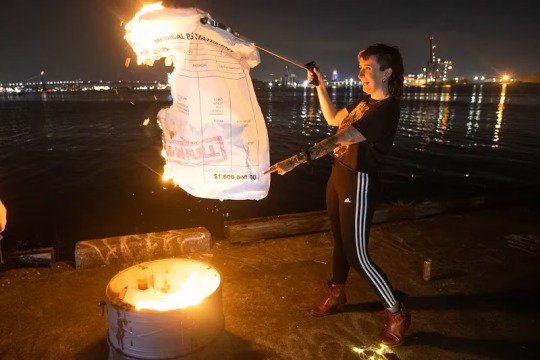
#social justice#medicine#debt#medication#queer#pagans of tumblr#philadelphia#debt relief#medical corruption#grass roots#lgbtqia
38 notes
·
View notes
Text
instagram
Get out the word get out the vote!
#get out the vote#women’s rights#bodily autonomy#protect reproductive rights#virginia#wearethemajority#thank you#on the ground#democrats#grass roots#talk to each other#speak up#amplify#Instagram
8 notes
·
View notes
Text
Shopper's Delight: Independent Bookstore Day (Tomorrow!)
In honor of Independent Bookstore Day tomorrow (April 29th), here are some of our favorite indies along with some handy links to special, signed (including bookplated), and/or personalized editions that can ship right to you! (Stores are listed alphabetically by state.) Please note that some of these are preorders, and some are already published titles.
Note: Make sure you request the copy be…

View On WordPress
#Anderson&039;s Bookshop#Blue WIllow Bookshop#Books of Wonder#Buffalo Street Books#Charis Books and More#East City Bookshop#Grass Roots#Main Street Books#Mysterious Galaxy#Northshire Books#One More Page#Parnassus Books#Porter Square Books#Powell&039;s#RJ Julia#Schuler&039;s Books#Swamp Fox Bookstore#The Dog Eared Book#The Ripped Bodice#The Strand#Third Place Books#White Whale Bookstore
30 notes
·
View notes
Text
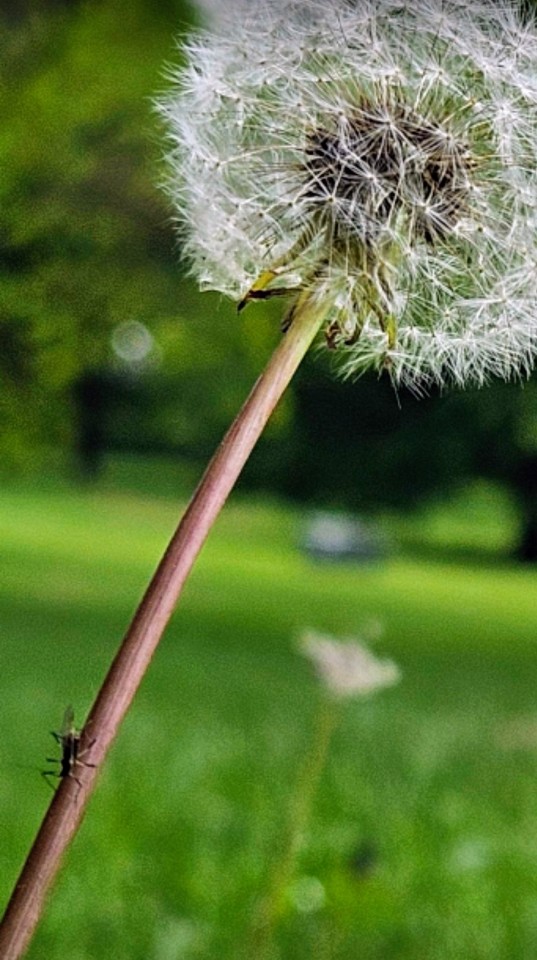
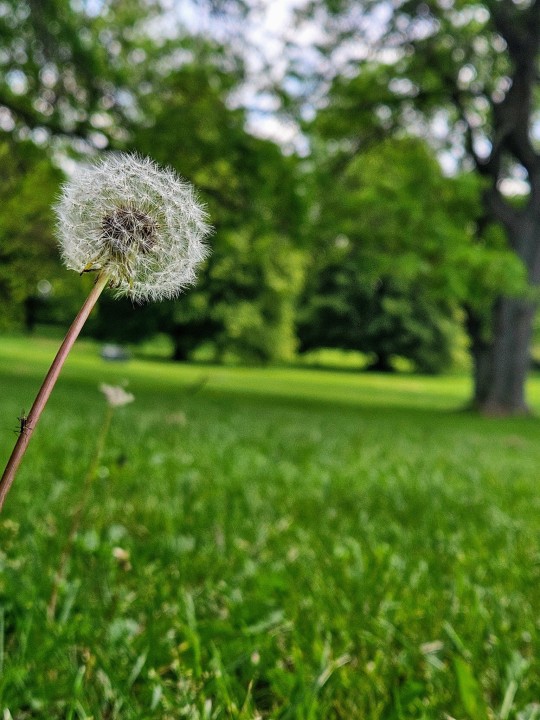
#fruit of the spirit#glorify god#praisethelord#can you feel my heart#can you hear me#dandelion#nature#garden#gardening#gardener#grass#picture#photography#phone camera#flowers#camera#my photos#photooftheday#bugs#insects#bugs life#photoshoot#plants#earth#stem#pollen#a bugs life#grass roots#horticulture#field biologist
5 notes
·
View notes
Text
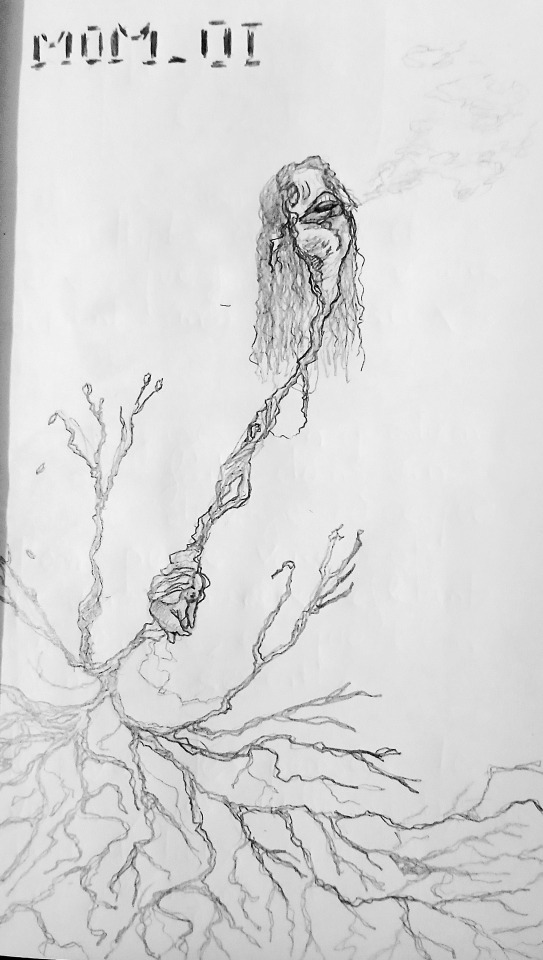
Sketchbook entry 0.1
.
.
.
.
.
#illustration#clayste#sketch#traditional art#clayste_5#flowers#mother#roots#grass roots#illustrators on tumblr#creatures#oddcore#oddworld#the backrooms#pencil#M0M_0I#okay
5 notes
·
View notes
Text


Connecting Spinozan currents to Indigenous resurgence
While we hope some of the affinities between Spinozan currents and Indigenous worldviews are emergent throughout this chapter, we want to spend some time thinking about them directly, especially in light of the relational conceptions we have outlined above. We think the relational conceptions of anarchism and friendship are resonant with (though necessarily distinct from) the lifeways of Indigenous peoples and many other societies that ground their worlds in connectedness to each other and the places they inhabit. For instance, writer and facilitator Zainab Amadahy offers a “relationship framework” that sees all life as fundamentally interconnected:
We two-leggeds are inter-connected with each other and with other life on the planet — indeed, even to the planet itself and beyond. What we think, say, and do impacts, directly and indirectly, everything and everyone else, which also affect us. We are further impacted by ancestors and will impact generations to come. Some of us even believe the reverse; that we can impact our ancestors and that our descendants impact us. In any case, we are clearly “in relationship” whether we acknowledge, fully understand and respect the concept or not.[81]
In our conversation with Glen Coulthard, he elaborated on his notion of place-based Indigenous ethics, which he calls “grounded normativity.” Coulthard shows how Indigenous resistance and values are literally grounded in the ongoing renewal of reciprocal relationships with land:
I don’t think you come to these things on your own. We’re always kind of embedded and constituted by what’s around us. The whole book I wrote [Red Skin, White Masks] is based on this. I’m nothing; I’m just a product of the messy relationships that have formed me over time. And the point about the book is, we’ve tended to think of these relationships as anthropocentric. But we’re also shaped by the other-than-human relations that we’re thrown into, including relationships to place and land itself, and that can have an effect on our perspective; it can shape our normativities, or what we think is right or wrong.[82]
Red Skin, White Masks shows how these relational webs have been foundational for Indigenous resurgence against settler colonialism, and inexorably connected to the struggle over land:
The theory and practice of Indigenous anticolonialism, including Indigenous anticapitalism, is best understood as a struggle primarily inspired by and oriented around the question of land—a struggle not only for land in the material sense, but also deeply informed by what the land as system of reciprocal relations and obligations can teach us about living our lives in relation to one another and the natural world in nondominating and nonexploitative terms.[83]
From this perspective, settler colonialism is an attack on Indigenous bodies and lands, and on the grounded normativities that sustain them. It is an attack on Indigenous forms of life. For the same reason, Coulthard suggests that recovering, sustaining, and defending these forms of life becomes crucial to decolonization and resistance:
Repetition, doing things, shapes how you see things. And depending on what that practice is, it can double back and shape how you do things. And in a land-based context, that kind of cyclical, dual conditioning—how we produce the necessities of our lives shapes our spiritual understandings and those can, over time, double back and shape how we go about doing things in the material sense. What we’re seeing now to validate this is that Indigenous people have been dragged away from those practices violently, into other ones oriented around a different mode of production, a different way of producing the necessities of life, through resource extraction, and that is now shaping our normative worlds; what we see as right or wrong. And it’s because these long-standing practices are being disrupted. Now what we’re doing with Dechinta and other land-based practices is we’re re-establishing—in an impure form because we’re all learning again—these different normative practices and worlds. And an important part of that is our relationship with land and other-than-human kin. So prefiguration is that emphasis on the importance of practice, and shaping even what we think our ends should be … it’s a very practical ethics … That’s not to devalue it; I actually hold this more valuable than abstract normative traditions where you have to dissociate yourself from your relationships in order to come up with pure principles, and that just results in a never-ending, always-there gap between what our ideals are, and where our shitty world is at. It justifies that. In theory we have it nailed down, we just haven’t quite approximated that in our lives and institutions. In contrast, the grounded normativity, practical, prefigurative starting place is saying no, those ideals are formed by what we do with our lives—by the relationships that we sustain and renew.[84]
In a way that resonates with the relational conception of anarchism we explored above, Coulthard speaks to the importance of prefiguration: nurturing relationships informed by reciprocity with human and other-than-human kin. Similarly, in her book Dancing on Our Turtle’s Back, Leanne Simpson writes that she is “not so concerned with how we dismantle the master’s house, that is, which set of theories we use to critique colonialism; but I am very concerned with how we (re)build our own house, or our own houses.[85]
Recovering forms of life that have been subjugated or ruled out entails resistance and transgressing of laws or norms, but these negations are only what is visible from the perspective of Empire. It is clear that this is not resistance for its own sake, or (only) because Empire is monstrous: resurgent forms of life are also about values and connections worth defending and nurturing.
While there may be resonances with anarchism, Coulthard and Simpson are speaking about the resurgence of specific, Indigenous forms of life. Where we live, resonances and affinities between Indigenous and non-Indigenous forms of life are always marked by the violence of settler colonialism. Our lives are inextricably linked to structures bent on the eradication of Indigenous life and the exploitation of Indigenous land. Navigating these uncertain connections requires dealing with difficult ethical questions.
In our part of the world, it is clear that we are living in the midst of Indigenous resurgence. All over Turtle Island, Indigenous peoples are reasserting their ties and responsibilities to their lands, refusing the racist and heteropatriarchal divisions imposed by Empire, and recovering relationships based in care and consent. This is an intensification of what has been happening since colonization began.
For non-Indigenous people—and for white, European-descended settlers who live on Indigenous land, specifically—this can be profoundly unsettling. Can non-Indigenous people support Indigenous resurgence? Can alliances productively stretch across the colonial divide? Through messy, uneven processes, settlers and Indigenous peoples are answering these questions together. Many non-Indigenous people are beginning to see themselves as settlers, complicit in ongoing dispossession and colonization of Indigenous forms of life. Black and Indigenous communities are forging alliances to resist the intertwined violences of settler colonialism and anti-Blackness. As Luam Kidane and Jarrett Martineau write,
These dreams of freedom mean that our acts of resistance are inextricably linked as Afrikan peoples and Indigenous Peoples of Turtle Island. But fundamentally, what this means is that we need to seriously, purposefully and with urgency begin to look to each other—not to the state—for our self-determination.[86]
As Indigenous resurgence and Black uprising reshape life throughout North America, new affinities and new forms of co-resistance are emerging. It is increasingly clear that decolonization is fundamental to all struggles to dismantle Empire and live differently here and now in North America. Decolonization has fundamentally shifted the values, priorities, and organizing practices of many anarchists, anti-authoritarians, and other radicals. As Harsha Walia writes,
A growing number of social movements are recognizing that Indigenous self-determination must become the foundation for all our broader social justice mobilizing. Indigenous peoples in Canada are the most impacted by the pillage of lands, experience disproportionate poverty and homelessness, are overrepresented in statistics of missing and murdered women and are the primary targets of repressive policing and prosecutions in the criminal injustice system. Rather than being treated as a single issue within a laundry list of demands, Indigenous self-determination is increasingly understood as intertwined with struggles against racism, poverty, police violence, war and occupation, violence against women and environmental justice.[87]
Indigenous people have forged alliances with ranchers and farmers resisting pipelines, with migrants resisting border imperialism, and with Black communities resisting criminalization and the prison industrial complex. They have linked up with anarchists while challenging them to rethink colonial conceptions of nation, territory, tradition, and authority. Some settlers are learning to take responsibility for developing relationships with the people whose land they are on, and learning to support Indigenous leadership. Indigenous resurgence has pushed non-Indigenous people to learn the histories and protocols of the lands where they live, to ask what it means to honor treaties, and what it means to live on land where treaties were never signed. In our conversation with Coulthard, he spoke to the potential of recovering Indigenous and non-Indigenous subjugated knowledges and forms of life, and exploring affinities between them:
Coulthard: If those [Indigenous] relationships to land and place and those sustaining connections are destroyed, then our views change on what’s good, what’s just. So what we’re trying to do in terms of land-based decolonizing education is to ensure that those practical relationships that inform our philosophical systems and vice versa are maintained to the best of our ability, and that requires a struggle and conflict with the forces that are trying to destroy it.
Nick and carla: It seems like white settlers are the ones who’ve allowed their own grounded normativities to be destroyed, or they have been destroyed, at least mostly. And we’ve been invited to participate in the destruction of Indigenous peoples’ grounded normativities.
Coulthard: I think the point that’s important here is that we’re talking about hegemonies. So grounded normativities are being wiped out by a hegemonic system—a system of dominance. So when you say “the problem with settler life is that it’s doing this,” I would say, in my more generous moments, that the hegemonic settler form of life is destroying Indigenous forms of life, but settlers have a whole host of other grounded normativities that have themselves been violently ruled out of existence. Whether that’s radical ecological stuff to anarchist stuff to Marxist stuff—whatever: they’re subaltern knowledges and practices. And there are affinities between those that we can map out and explore. There’s a lot within non-Indigenous settler traditions that have suffered their own erasure that might be brought back to the fore. And that’s way better than the alternative, which is stealing what we’ve got. So what Foucault would refer to as a resurgence of subaltern knowledges. There’s a rich history of overlap and affinities that I think need to be drawn on, and crucial to avoid the violences of cultural appropriation and “becoming Indigenous.”[88]
Exploring affinities between Indigenous and non-Indigenous traditions and forms of life raises a lot of questions. There is a deep ambivalence to the recovery of non-Indigenous traditions, or the creation of new alternatives, especially those that involve direct connections to land. Deepening these relationships—with seasons, territories, plants, and other-than-human forces where we live—can end up entrenching dispossession and colonization.
From conservation to farming to fishing, many settler (especially European) traditions have evolved or been sustained through Indigenous dispossession and an attack on Indigenous forms of life. Settler colonialism has always included a project of attaching white bodies to Indigenous land, and attempts to “reclaim the commons” can erase Indigenous presence.
At the same time, there are emergent alliances and relationships between settlers and Indigenous people, based in consent and shared responsibility. Settlers are critically revaluing some of their own traditions in ways that enable new affinities and solidarities. Settlers have been able to offer their own practical land-connected skills and knowledge like herbalism, bioremediation, cooking, carpentry, ecological gardening and more, alongside the skills and knowledges held by Indigenous people.
In our experience, it has been settlers rooted in their own traditions and values who are most capable of building strong relationships with Indigenous peoples, showing up in meaningful ways, and decentering themselves and staying on the sidelines when it is appropriate. It is people with strong friendships—their own webs of care and support—who are able to consistently support decolonization, whether that means supporting frontline land defense struggles or urban Indigenous initiatives, or cultivating meaningful, long-term relationships with local Indigenous folks where they live.
These capacities are not based on abstract morality, nor are they about having the most bang-on anticolonial analysis. They are based on a web of connectivity that enables people to think and act differently. One thing that is clear to us about Indigenous resurgence is that it is driven and sustained by these deep connections and relationships that colonization seeks to destroy. Rebuilding and sustaining these connections is clearly at the root of decolonization—for Indigenous and non-Indigenous people, differently.
How can settlers and Indigenous people explore affinities between autonomous forms of life? What are the potentials and pitfalls of revitalizing non-Indigenous traditions (or inventing new ones) on stolen ground? These questions cannot be answered in the abstract, but are already being asked and answered collectively, over and over again, in multiple ways, across different territories, movements, and struggles. Hanging onto these as ethical questions, we think, helps get beyond the shame and guilt of moralism that can be so immobilizing (and counterproductive) for settlers—especially white settlers. Instead of the narcissistic shame that impels settlers to ask for and demand absolution from Indigenous peoples, ethical questions can shift people towards active responsibility that is rooted in consent, as Indigenous people often emphasize. For us, this means finding the wiggle room of freedom—the capacity to work on our relationships—and participate in new and old forms of nurturance and resistance.
#joy#anarchism#joyful militancy#resistance#community building#practical anarchy#practical anarchism#anarchist society#practical#revolution#daily posts#communism#anti capitalist#anti capitalism#late stage capitalism#organization#grassroots#grass roots#anarchists#libraries#leftism#social issues#economy#economics#climate change#climate crisis#climate#ecology#anarchy works#environmentalism
15 notes
·
View notes
Text

One of our own 🖤🤍
#swansea city afc#football#efl#championship#tier 2#liam Cullen#futbol#soccer#pêl droed#cymru#Abertawe#wales#liberty stadium#swansea.com#pitch#home grown#grass roots#luke Williams
3 notes
·
View notes
Text
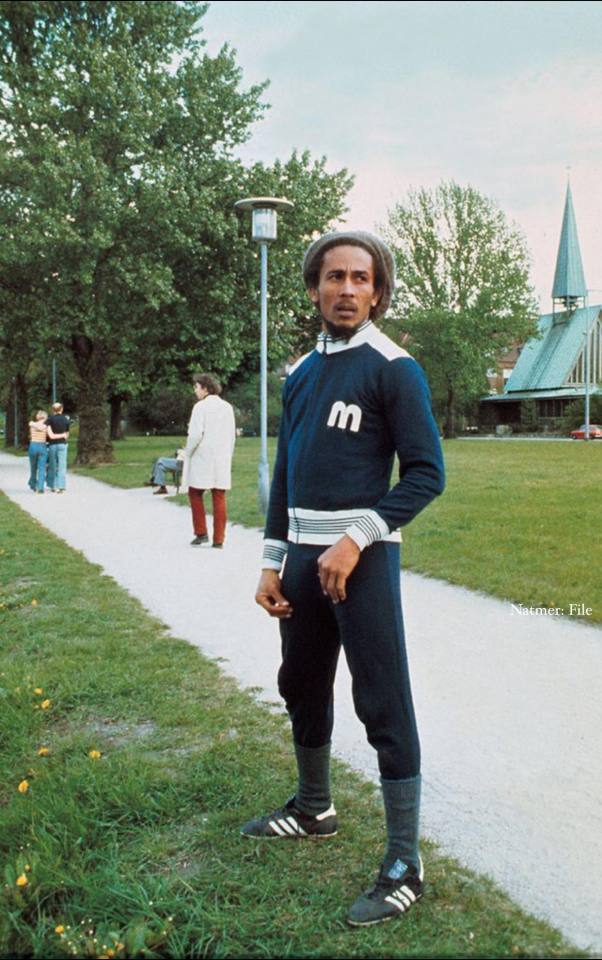
King Of Reggae
#David Bailey#portrait#bob marley poster#bob marley and the wailers#bob marley#roots reggae#reggae roots#reggae#music#reggae music#jamaica#youtube#reggae man#bob morley#rocksteady#rootsreggae#rootsmusic#roots and culture#roots#grass roots#roots rock#i love reggae#reggae archive#reggae artists#ska reggae#ska#new music#dancehall#King Of Reggae
13 notes
·
View notes
Text
Kicking it Old School
Alright, so the (American) government being the asshole it is, they got mad that we did the things that we have written into the constitution, namely community organizing and using our right to free speech and assembly to voice decent to the existing genocide occurring in Palestine, opposing the misuse of our tax dollars to fund said genocide, and point out that while they can not be bothered to reach across the aisle on any other issue that would benefit Americans, namely utilizing those billions and in some case TRILLIONS of tax dollars to provide help to struggling people in our country, they could agree to attempt to silence the millions of voices across the nation for their use of a platform that was developed outside of the country because of a hypothetical fear that they manufactured of a foreign nation doing the thing that American made social media platforms (including big t that I'm posting from right now) are already doing. Even though the data is housed locally for American users by an American company. Even though the tenuous "fear" they have is that the parent company of Tiktok, Byte Dance, which is located in China, has no direct control over Tiktok itself, which is based in Singapore, an entirely separate country that the Chinese Government does not have sway over (Just a reminder for Senator Cotton, the ignorant racist who refused to listen to the information provided by the CEO of Tiktok, a Singaporian National).
So the manufactured fear has allowed them to oppose a vast network of community organization, with no real enforcement to be had, which is a not so polite reminder that VPN's exist, and can be used to evade all of this. But regardless, not everyone is going to be able to afford the VPN option, and there should be a free option for community organization. So here we are, coming back to our roots, the OG, the classic, rebirth of the 2010's era, the tumblr blog has returned. I deleted my original tumblr years ago. I'm a public person, to the point that my own home is highly visible, albeit a bit tedious to watch since the one space people can see in to is where I sleep and watch tv. But being that my content was always intended to be humerous, if a bit jaded and dark, I figure now is the time to use my extensive talents and creative skills start doing something that I've wanted to do for years. If this takes off, I might transition to a full time hosted blog, but I'm a fan of grass roots starting points, and truthfully, there's not much more grass roots than tumblr. Additionally, the tools and skills of the trade for podcasting are available to me as well, and I'm not opposed to it, since I already knowledgable in the creation, and I could easily do things with it. Who knows, maybe this is the start of my full time professional career, but who knows. Regardless, I'm going to list a few things you can expect from me on my page moving forward.
- Anime content
LOOOOOVE me some Anime. I don't interact a ton with the fandoms, mostly because there are some super questionable and problematic ideas (ships) floating around the internet. That being the case, I'll mostly talk about the ones I love most, namely One Piece, because I live for the display of leftist rhetoric and dispensation of Justice and Joyboy Wonder that is Luffy and his crew.
-Politics
I'm more than a little comfortable discussing politics. I've been involved as a volunteer lobbyist in the past, and I engage with and regularly review content revolving around national and international politics, and I think it's important to not avoid discussing it. My takes will not always be perfect, but I generally center them around the ideas that people should always come before companies, and people can generally make decisions for themselves regarding self identity and bodily autonomy. Science will never be political to me, and regardless of my personal religious beliefs, science will make the decisions for me regarding health and wellness.
-Tea
I am a lover of all things tea. I have a talent I have developed for a while now, of making home brewed loose leaf tea, and I enjoy sharing that knowledge and information with others. Tea is very much a special interest for me, on par with One Piece and Minecraft. So you will definitely see stuff like tea recipes and resources from me regularly. I have for some time now had a dream of owning my own tea shop, and I will absolutely achieve that some day. And yes, my love of this stems from my love of Uncle Iroh.
-Cats and Animals in General
I have two cats, Shadow, who is pictured in my current PFP, and Poppie, the gremlin boy. I intend to someday have a service dog again, and when that happens, you will be introduced to said dog, but for now, it's me and my demons. I have this desire to have a small plot of land with a few farm animals to watch over, namely a few hens for eggs, maybe a mini-cow or some goats to produce fertilizer, but also I want live in the middle of the woods, so like, who knows how that will shake out. I'm a four seasons kind of person, and northern woods tend to have that. That is for the future to decide, but for now, it's just me and my cats.
-Lifestyle stuff
The category is broad, but includes all kinds of things. Home tech, cooking, discussions on queerness, and life tips and advice. I tend to write some of these from the perspective of me to my past self, telling things I wish I had known then that I know now.
-Music
Less focused on it's discussion, and more on presentation. I have a decently expansive taste, that only really excludes modern pop country, which I view as terrible. That said, old country, such as Dolly Parton, Johnny Cash, and the like, are among some of my favorites. That said, I'm also a hiphop head, and I've been to more underground rap shows than any other type of live show.
-Mental Health
I'm mentally ill. I have been diagnosed with three separate mental health disorders, as well as ADD, and although I have never been officially tested, I am more than likely on the Autism Spectrum. I have lived a rather colorful life full of interesting choices, and I was not always given the grace I needed to grow. So from time to time, I'll have things to say on mental health. I'm not one to answer questions for others about their own mental health, because I know this is something that needs to be handled by professionals, but I will always do my best to be up front and honest, because I hate the idea that the stigma of mental health problems would prevent someone from living a full life.
I am looking forward to this. If things on tiktok continue, I'm still going to try to be active on tumblr, because diversifying your engagement can be beneficial. If you want more info about me, check out my other pages, including my link tree.
Stay safe everyone.
#mental health#mental illness#cats#lifestyle#queer community#grass roots#blogging#one piece#anime and manga#art#poetry#writing
4 notes
·
View notes
Text
I’m a grass roots revolutionary, of corse I understand what needs to be done on an individual and communal basis to achieve well defined goals!
I’m a grass roots revolutionary, of corse I use and support public transportation!
I’m a grass roots revolutionary, of corse I plan on doing trash clean ups in the areas that need it the most!
I’m a grass roots revolutionary, of corse people think my way of thinking is weird!
I’m a grass roots revolutionary, of corse im going to listen to, try my best to understand, and respect the rights and voices of black, brown, and First Nations communities!
#joining a trend#grass roots#revolutionary#make a difference#love one another#leftism#leftist#left wing#revolution#tiktok trend
2 notes
·
View notes
Text
youtube

All of the lonely nights
Waiting for you to come, longing to hold you tight
I need you so desperately
Waiting for you to come bring all your love to me
But I'd wait a million years
Walk a million miles, cry a million tears
I'd swim the deepest sea
Climb the highest hill, just to have you near me
As love is reality
When you are near to me, I am in ecstasy (whoa)
I'd swallow the pain and pride
Baby, I just can't hide all that I feel inside
And I'd wait a million years
Walk a million miles, cry a million tears
I'd swim the deepest sea
Climb the highest hill, just to have you near me
A million years, I would wait for you
A million tears, baby, I'd be true
A million miles, I would follow you
A million years, if you want me to
Pacing the floor, detest
Sweat pouring down my chest, still I can't love you less
It's worth all the pain and pride
Baby, I just can't hide all that I feel inside
So I'd wait a million years
Walk a million miles, cry a million tears
I'd swim the deepest sea
Climb the highest hill, just to have you near me
I'd wait a million years
Walk a million miles, cry a million tears (whoa)
I'd swim the deepest sea
Climb the highest hill, just to have you near me
I'd wait a million years
Walk a million miles, cry a million tears (whoa)
I'd swim the deepest sea
Climb the highest hill, just to have you near me
#ineffable pining song#I totally think sooooo#ineffable husbands#crowley#Youtube#good omens#grass roots#music
6 notes
·
View notes
Text
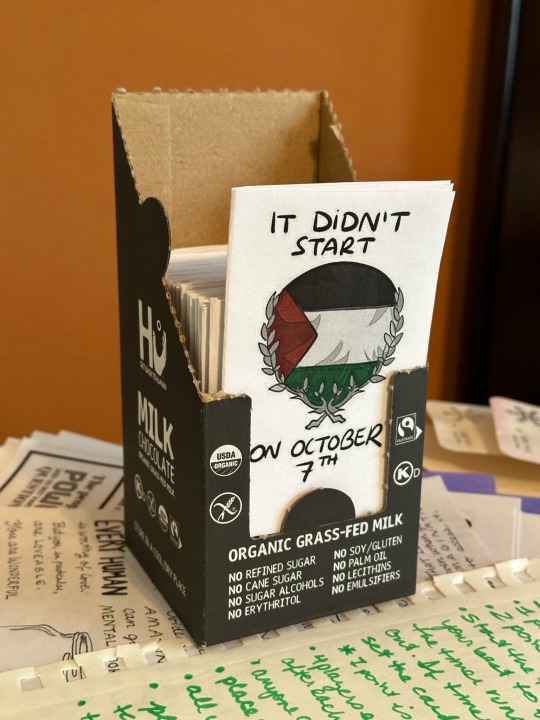
Please help! I want to donate several zine holders to local places and keep them stocked with informational zines. My current plan is to use these chocolate bar dispensers as a template to create more. I’m willing to make or to buy (provided the cost is relatively low). All suggestions welcome! —- zine is by @artistotel, free to download!
#make art#words heal#zines#zinester#zine creator#zinesters of Tumblr#free zine#mini zine#minizine#save gaza#reading makes a difference#reading is revolutionary#reading is resistance#resist#is chocolate complicit or revolutionary#love not fear#free palestine#grass roots#peaceful protest#knowledge is power#zine
3 notes
·
View notes
Link
“In the boat, Mrugank Prabhu unpacks his camera, sets up his telescope, and begins his count.
Prabhu is a scientist with the Bombay Natural History Society (BNHS), a 139-year-old organization involved in conservation and biodiversity research across India, which is leading an ambitious 10-year-long study to monitor a unique phenomenon. Every winter, thousands of greater and lesser flamingos fly into Mumbai, forming a sea of pink against a backdrop of skyscrapers, bridges, and oil refineries along the 26-kilometer-long Thane Creek. The seasonal gathering is a source of wonder in Mumbai, and also a bit of a mystery.
The flamingos only began visiting Mumbai in significant numbers in the 1990s. As the city grew in the 1970s and ’80s, so did the volume of untreated sewage flowing into Thane Creek, nurturing the algae that are the flamingos’ main food and turning the area into a feeding ground for the birds.
Their numbers have increased in the past two decades, from at least 10,000 in 2007 to an estimated 130,000 this year.
The phenomenon illustrates the wealth and complexity of urban coastal ecosystems in India, say experts. Sometimes, “human impact results in conditions that seem terrible for nature at a glance, but are actually a gold mine for some species,” says Sunjoy Monga, a veteran local naturalist and BNHS member who has also led a study on Mumbai wildlife. “There is so much organic richness amid the gloom [of the city].”
Now, the flamingos are reshaping the ecological mindset of the city, too, showing what wildlife can do for conservation even in the most pressured environments. Flamingos have become a source of pride for locals. In the past few years, citizens have been holding annual flamingo-themed festivals and runs to raise awareness of local wetlands. In 2018, authorities designated almost 1,700 hectares of the creek and shore as a flamingo sanctuary...
--
On Earth Day, April 22, a small group of upper-middle class residents meet on a trail along a dense patch of mangroves in Navi Mumbai, the town on the eastern banks at the mouth of Thane Creek. This and nearby mangroves and shallow ponds provide roosting sites for the flamingos when high tide covers the mudflats. The residents, members of Save Navi Mumbai Environment, a citizens’ network to protect local mangroves and wetlands, introduce themselves and describe their path to environmental activism. Many of them were first moved by the destruction of greenery in their own backyards; one professional, who brought his young son along, says he got involved after losing a local pond to a development project. Another man says he and his wife traveled to Lake Nakuru in Kenya to see flamingos some years ago, unaware of their presence in his own city. “What fools we were,” he says.
After the meeting, Sunil and Shruti Agarwal, cofounders of Save Navi Mumbai Environment, take me up to their apartment, one of hundreds in the high-rises bordering the wetlands along the creek. From their 13th-floor balcony, you can see the mangroves that got them involved in environmental activism and, at high tide, the flamingos that brought others to their cause.
Soon after the Agarwals moved here in 2013, they challenged the clearance of land for a new housing project and golf course on these wetlands. Neighbors told them they couldn’t win — the project was promoted by a subsidiary of the powerful Adani Group. But in 2018, the Bombay High Court stopped the development, giving the couple their first big victory. Since then, they’ve been fighting against other development projects in nearby wetlands and raising awareness about local biodiversity. They roped in their son and daughter and their friends to help organize neighborhood festivals with games and activities for children, as well as an awareness-raising annual marathon called Run for Flamingos. At least 2,000 people participated in the event in 2020. “Nobody’s going to run for wetlands,” says the Agarwals’ daughter, Surabhi.
Authorities at the sanctuary, which is managed by the state forestry department, are also promoting restricted tourism around the flamingos, hoping to educate the public about the birds and their habitat. Before the COVID-19 pandemic, a new marine education center and flamingo boat rides attracted some 17,000 visitors annually, including busloads of school students, says Virendra Tiwari, the senior forest officer who oversees the sanctuary. The unit has an ambitious management plan for the sanctuary that includes increased security to prevent illegal construction, a big museum on the banks of the creek, and more boats for rides—but not so many that they would disturb the birds, says Tiwari.” -via Reasons to Be Cheerful via Hakai Magazine, 1/11/23
(See the article for some stunning photography!)
#india#mumbai#navi mumbai#environmentalism#flamingo#grass roots#grassroots#migratory birds#urban ecology#good news#hope
19 notes
·
View notes
Text


















"Waldreg"/ Geoff Morell Impressions
#Waldreg#Geoff Morell#the next (old) Elendil?#Rings of Power casting#Sergeant Mark Jacob#Blue Heelers#Cloudstreet#The Mule#Rogue#Bordertown#Blackrock#Murder Call#Grass Roots#Farscape#Changi#Ten Empty#Sea Patrol - LCDR Jack Freeman
14 notes
·
View notes